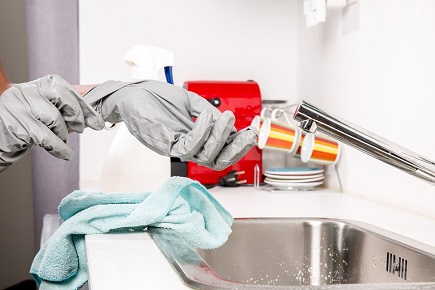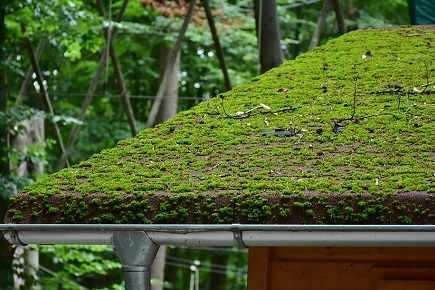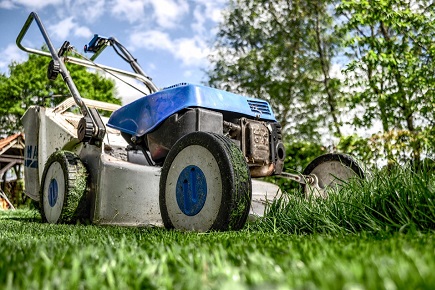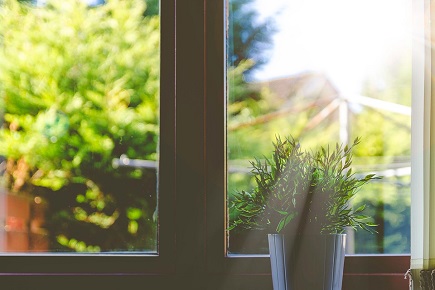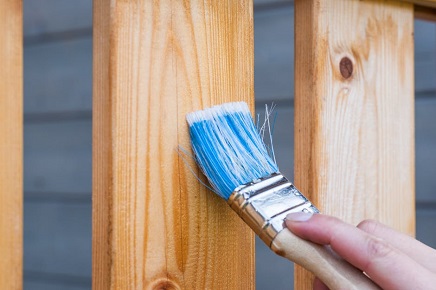Owning a house is the ultimate Australian Dream for many people. And if it has a nice view, a pool and is in a good location – you feel like you’ve hit a jackpot.
But house ownership also comes with higher maintenance costs, and thinking about various tasks you’d need to do can be quite intimidating. By staying on top of regular home maintenance, you can significantly minimise unnecessary stress and costs. After all, it’s a lot easier and cheaper to look after what you already have rather than having to replace items or having them become a safety concern. And good news is that with a little bit of time and effort, a lot of the maintenance can be done by you.
We also talk about the difference regular home maintenance can make when it comes to selling your property in our Building Inspection Tips series.
House Maintenance Calendar
To keep things as efficient as possible, it is best to have a maintenance calendar/schedule in place with a few chores allocated to each weekend. This will help you not feel too overwhelmed while ensuring that all important tasks are being taken care of.
Of course, there is no single view on which task needs to be done in which season. After speaking to our own building inspectors as well as researching online, we have prepared a calendar of periodical and seasonal tasks for you to use as a guide for your house maintenance. You don’t have to follow this calendar precisely: as long as all these items get done, you will be able to enjoy your home for years to come.
Monthly Tasks
• Clean the Rangehood Filters
Oh my, they can get really greasy really quick. So, if you haven’t done it for a while, you are in for a real treat. The best way to get rid off all that grease is to soak the filters in hot water mixed with a strong degreasing solution for a few minutes.
• Clean Sinks and Drains
Cleaning these items regularly will help prevent blockage and unpleasant smells. You can simply use a drain cleaner of choice (available in all major home maintenance stores and supermarkets) or, alternatively, utilise one of many homemade tricks such as using vinegar ice cubes or baking soda.
• Fire Safety Checks
If you keep fire extinguishers, check their gauges to make sure they have adequate pressure. And if you have smoke alarms installed (you really should), test it by pressing the “test” button. If it doesn’t go off, give it a clean, replace the batteries, and try again. Still no sound? Time to have it checked professionally and most likely replace.
• Clean or Replace HVAC Air Filters
These filters are used in heating, ventilation and air conditioning systems to improve air quality. Ensuring that the filters are kept clean and are being replaced when necessary will improve energy efficiency and extend the life of your unit. It is commonly advised to change filters monthly. In reality, for small families with no pets or allergies, changing filters once every 2-3 months will be just fine.
• Test Garage Door Auto-Reverse Feature
The best and safest way to test it is to close a door onto a large item (a piece of wood or maybe a furniture item). The door should reverse after a second or so after hitting the item. And if you have photo-electric sensors, place an item in front of them and if the door doesn’t go back up straight away, you need to have it looked at as soon as possible.
Quarterly Tasks
• Run Water and Flush Toilets in Unused Spaces
This mostly applies to guest bathrooms and any other water sources you don’t use on a regular basis, such as outside taps for example. Doing this will help to prevent grime building up.
• Clean Laundry and Bathroom Exhaust Fans
These fans remove steam produced by hot showers and dryers. If steam can’t escape the room, it will turn into condensation and in the short-run, will result in mould and funky odours. In the long-run, it can rot drywall, peel wallpaper and warp wood trim and furnishings.
That’s why keeping the exhaust fans clean is important. Direct Energy has a step-by-step guide on how to keep them in tip-top shape.
• Clean a Clothes Dryer Filter
If the filter is covered in lint, this can block the air flow and increase drying time, and the heating unit is more likely to burn out sooner.
• Double-check the Temperatures of Your Fridge and Freezer
To maintain food safety standards, it is recommended that you keep the fridge temperature below 5°C and the freezer temperature below -18°C.
Choice has a fantastic guide about fridge temperatures.
Biannual Tasks
• Test Water Heater’s Pressure Relief Valve
Doing so will prevent mineral and corrosion build-up and will significantly reduce the likelihood of water leaks. It will also help your heater run more efficiently.
The temperature and pressure relief valve (TPR valve) opens to release pressure build-up when the temperature or the pressure get dangerously high. This prevents a possible explosion.
According to Dummies, to test the valve to ensure that it’s working properly, simply raise and lower the test lever several times so it lifts the brass stem that it’s fastened to. Hot water should rush out of the end of the drainpipe. If no water flows through the pipe or you get just a trickle, replace the valve.
However, if a leak results immediately after a test, simply operate the test lever several times to free lodged debris that may be preventing the valve from seating properly. If the valve is doing its job and hot water is dripping or spewing out of the TPR drain valve, turn down the temperature on the water-heater controller and/or turn down the water pressure.
• Defrost the Freezer
The temperature inside a home freezer fluctuates each time the door is opened. And each time, a little bit of warm air seeps in, condenses, and that moisture then freezes on the sides and shelves of a freezer in the form of frost.
A frost-free freezer is equipped with a heating coil and temperature sensor to prevent the accumulation of frost. However, if your freezer is not frost-free, you may find that the frost builds-up. The walls of ice not only take up valuable space but also make it more difficult for the freezer to work efficiently.
Defrosting your freezer when the frost build-up starts covering a large area is a great way to keep it running well.
• Have a Major Cleaning Session
Take one Saturday or Sunday every 6 months and give the whole house a proper clean. Appliances, windows, dusting every nook and cranny, etc. Don’t forget any outbuildings, like a garage. Keeping things clean and not letting grime and dust build up over years will help keep your home in great shape. And make sure to get your whole household involved!
• Vacuum Refrigerator Coils
Of course, this will be hard with a built-in fridge. But if you have a free-standing one, don’t skip on this task. The fridge energy consumption can equate to 15% of your total bill, so you want it to be as efficient as possible. Over time, the coils get dirty and your fridge requires more energy.
How to best clean the coils will depend on their location: top, bottom or back. GE Appliances have a great guide, check it out.
Annual Tasks
The easiest way to tackle these tasks is to group them by season.
• Spring
It is very-well known that he best time for cleaning is spring. Pay particular attention to the exterior of your home as it’s just gone through winter and is preparing for summer heat and humidity.
• Have your air-conditioning system serviced.
• Clean out gutters as they’ve likely accumulated leaves during autumn and winter.
• Repair or replace damaged window screens to keep insects out.
• Inspect the exterior of your house for any damage: is any paint chipping or siding/masonry damaged?
• Check the foundation for any cracks.
• Check the exterior drainage – puddles should not stay around your home for more than 24 hours.
• If safe, inspect roofing for any damage. You may need to get a professional involved.
• Inspect roof void area (if you have one) for any leaks.
• Inspect outdoor play equipment.
• Prune spring-flowering shrubs after they bloom and summer-flowering shrubs before they bloom.
• Clear away any dead plants.
• Clean and seal deck if necessary. Also check for any loose boards and posts.
• Schedule a septic tank inspection (if you have one).
And, of course, don’t forget to get the barbie ready for summer!
• Summer
Summer is meant for relaxing and having fun. As well as looking after your lawn and garden. But there are a few small tasks you can still do.
• Inspect subfloor (if you have it) for leaks and other moisture issues.
• Organise a pest inspection and treatment.
• Check that decorative vines are not becoming invasive.
• Clean out window wells of debris.
• Check nearby trees for interference with electric lines.
• Inspect and test plumbing for leaks.
Make sure not to forget your Christmas shopping and little getaways!
• Autumn
Autumn is a beautiful season in Australia, but forthcoming cold and rain can do a number to your home, so you don’t want to ignore winter preparation.
• Check for leaks in windows and doors. Re-caulk if needed. Also check locks and deadbolts while you are at it.
• Tighten any hinges, handles, racks, shelves, knobs and so on.
• Check that your RCDs (a sensitive safety device that switches off electricity automatically if there is a fault) operate and your power outlets work,
• Replace any frayed electrical cords.
• If you have fireplaces, have them cleaned as you are likely to use them more during winter.
• Check driveway for cracks, especially if you live in those areas where it can get a little bit frosty during winter.
• Remove (or cover) window air conditioners.
• Drain sediment from hot water heater.
• Organise furnace inspection.
It won’t be long before the cold weather sets in, so stock up for those rainy days!
• Winter
Winter is a good time to turn your eye to the interior of your house. It’s also the best time for any internal projects (DIY or not).
• Inspect bathroom and kitchen caulk. Re-caulk if needed.
• Remove shower-heads and clean any sediment.
• Walk around the house and see if any paint is chipping that requires touching up. Also check for any signs of rising damp.
HomeBinder
Staying on top of all these tasks can be intimidating. We have recently discovered a fantastic web app called HomeBinder that helps manage your home by keeping all your household information in one place. It also sends you reminders when important maintenance is due.
Find out more about this amazing app here.
Want to get more helpful tips and insights?
Check out our blog for more great articles.
Start ExploringBest Regards,
The EYEON Property Inspections Team
At EYEON Property Inspections, we help you buy and sell with more confidence.


